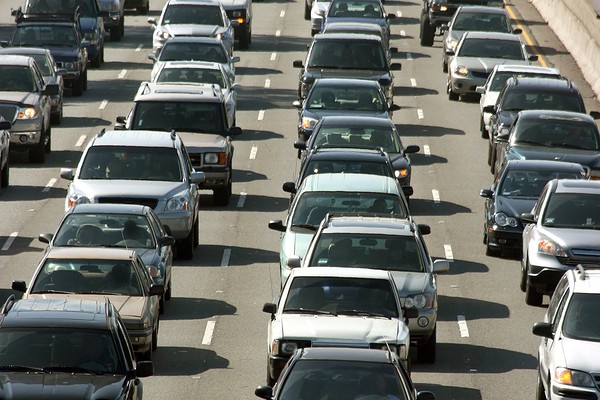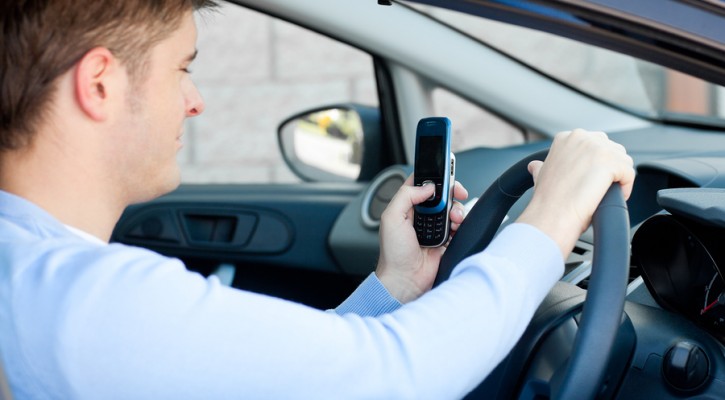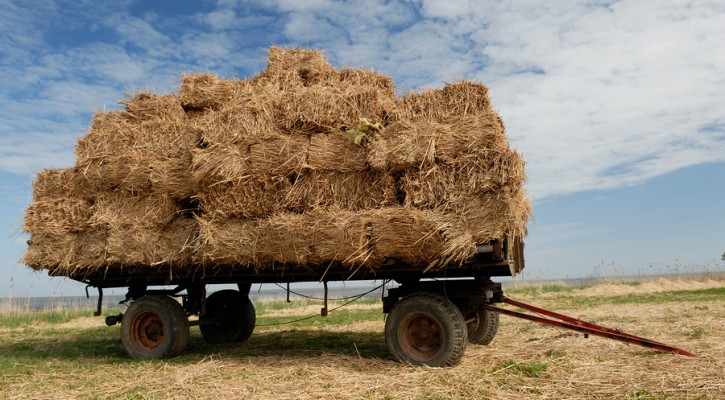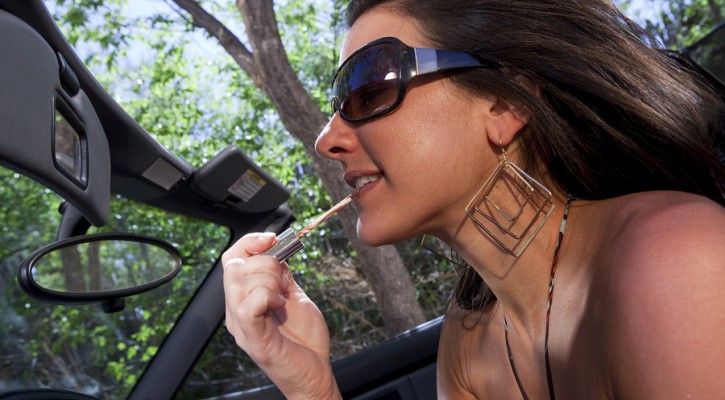Steering Your Way Out of a Crash
June 19, 2014
Driving a truck is both science and art. Driving a truck through an emergency situation requires mastery in both categories, especially when it comes to avoiding a crash. In most cases, you will have to make a choice between braking and steering your way out.
When travelling over 25 mph, it is usually better to opt for the steering option. This is because large trucks require a longer distance to come to a controlled stop, and the reaction time for swerving is faster than the reaction time for braking. However, good steering skills is a must.
This is why instructors advise drivers to keep both hands on the steering wheel: they will need them for quickly turning the wheel one-half turn in one direction, then turning it back almost a full circle in the opposite direction to swerve around an object or vehicle. Maintaining control and returning to center steering as you continue moving will require two hands and plenty of focus.
You might have heard the old expression “hands at 10 and 2”, however, these days the DMV suggests keeping hands in the 9 and 3 o’clock position or the 8 and 4 o’clock position, depending on which is more comfortable. The DMV also recommends keeping your thumbs along the face of the steering wheel instead of gripping the inside of the rim. The new guidelines were put in place to for three major reasons:
- You will be less likely to overcorrect during an emergency steering maneuver, which could cause you to spin out of control or run off the road.
- It is less likely the air bag will throw your arms and hands back into your face if you are involved in a crash.
- Your arms will be more comfortable and less fatigued during long drives. A 10 and 2 o’clock hand position is acceptable; however, if your air bag deploys, you are at risk of injury.

More Roads = More Traffic
June 18, 2014
Once upon a time, a major city tore down one of its most vital highways. A highway that carried 168,000 cars per day. They replaced that highway with a river, parkland and some smaller roads. And, guess what? Traffic didn’t get any worse. Instead many other things, such as pollution and quality of life, got better. It was a great day for urban planners all over the world.
How is this possible? How can it be that a reduction in highways doesn’t halt traffic and bring an industrious city to its knees?
You’d be forgiven if you have ever been stuck in traffic and thought “more lanes would help ease this congestion”. However, decades of research done by traffic engineers, economists and social scientists shows us that building more roads actually makes traffic worse. Here to explain why are the great guys writing over at Autopia:
What’s Up With That: Building Bigger Roads Actually Makes Traffic Worse | Autopia |
Back It Up: Tips for Truckers
June 17, 2014
The backing range at truck driving school is an amusing place to spend an afternoon. Watching new drivers master the difficult maneuvering of backing up is hilarious. However, if you are the new driver then it is downright nerve-wracking. It’s all going to be fine, though, especially with these helpful tips from TruckingTruth blogger, TruckerMike:

Map Apps and Distracted Driving
June 16, 2014
Using the wrong map app, or using it the wrong way, or even using it at all can be a dangerous thing to do while driving. Every millisecond that your eyes are off the road is a millisecond too long. In the realm of distracted driving, map apps that require you to look away from the road are right up there with texting, dialing phone numbers and taking selfies while behind the wheel.
This issue has caught the attention of the Transportation Department, which is seeking the authority from Congress to regulate navigation aids of all kinds, including smartphone apps.
Much like the regulation of mechanical features on cars (such as seat belts, brakes, exhaust, etc.), the proposal would give the National Highway Traffic Safety Administration authority to regulate navigation aids. However, advancements in smartphone technology move much quicker than any mechanical changes in cars, and tech companies claim that it would be impossible for laws to keep up with the ever-evolving world of smartphone features. Meanwhile, automakers largely support the measure, and are already complying with voluntary guidelines for their built-in navigation systems.
What everyone needs to remember is that distracted driving is the issue. Whether we see more regulations or not, people will continue to be distracted by cell phones, putting on makeup, and even reading good old-fashioned maps. These distractions will result in moving violations, collisions and fatal crashes.
So, what can we do about it? We can create awareness and share knowledge, that’s what. We can use technology to cure technological problems. Volkswagon’s recent viral video is a prime example:
That short, yet powerful video has reached millions of people in just a matter of days.

Do You Need a CDL For That?
June 14, 2014
If you want to be a trucker, then you will need a Commercial Driver’s License (CDL). But, what about a bus driver, taxi driver, or dump truck operator? What if you want to haul some livestock, or work for FedEx? The answer is not so simple. Since each state has its own licensing laws, drives will need to check with the local DMV website for their specific location. However, there are a few general rules that apply across the U.S.
You will need a commercial license to drive any of the following:
– Vehicles weighing more than 26,000 lb (11,793 kg) for commercial use
– Vehicles transporting quantities of hazardous materials that required warning placards under Department of Transportation regulations
– Vehicles designed to transport 16 or more passengers, including the driver

Fathers and Sons and Trucks
June 13, 2014
Trucking can be a tough gig for the family man, especially those working long hours and travelling cross-country. However, many good drivers are also good fathers. Fathers who have lived through many good years with their children, sharing moments that will make the toughest of rough-necks tear up and feel that bittersweet Father’s Day joy.
TheTrucker.com has put together an awesome collection of Father’s Day stories for all you hard-working drivers out there. This one’s for you, Dad’s:
http://www.thetrucker.com/News/Stories/2010/6/20/HappyFathersDayLiketruckerlikesons.aspx
Is Trucking for You?
June 12, 2014
How do you know if trucking is the right career for you? It’s a good question to ask, especially before going through the whole ordeal of testing, training and job searching. Luckily, experienced trucker and witty blogger Bret Aquila has some words of wisdom on the subject. See the full story here:
http://www.truckingtruth.com/trucking_blogs/Article-3812/how-do-I-know-truck-driving-is-for-me

Take the Distracted Driving Quiz
June 11, 2014
We all know that distracted driving is bad. But, what is distracted driving exactly? This hilarious quiz from the fine folks at Car Talk demonstrates just how multifaceted the term “distracted driving” can be. Here are some of our favorites:
While driving do you…
– Brush your teeth, gargle and spit
– Eat anything that takes two hands, like a Big Mac or Moo Shu Pork
– Try to build a scale model of a nuclear reactor
– Discipline your dog, cat or pet ferret
– Focus on removal of obstinate nose or eyebrow hair
– Yell at either Rush Limbaugh, Air America or Click and Clack
– Perform complex removal of spinach or other food products from between teeth, including use of mirrors
You would be surprised at how many people answer “sometimes” and “always” to these types of questions!
Humor is an effective tool for getting to the heart of an issue, especially distracted driving. How many drivers have you seen distracted by funny habits such as nose-picking, headbanging or chest shaving? It’s not always cell phones that cause crashes, but other terribly embarrassing things as well.
So spread the knowledge and awareness of distracted driving by sharing the humor. If you do, then we’ll buy you a pony!

Summer Trucking: A Gear Guide
June 10, 2014
Winter is long gone, spring has passed, and the end of Memorial day means nothing but hot, hot, hot summer days on the road. Summer trucking is a whole different ball game. If you’re new to the game, or suffered through last year’s heat without these modern comforts, then this post is for you.
From air conditioners to refrigerators, odor eaters to cooling system repair, this cool trucker gear is essential for over the road drivers during summer trucking season. The good people at OverdriveOnline have compiled this handy list of summer products to help truckers stay cool and keep their rigs running smooth. Remember, it’s just as important to maintain your own health as it is to maintain your rig’s health! See the complete guide here:
http://www.overdriveonline.com/changing-gear-cool-stuff-for-a-hot-summer/
Tracy Morgan Crash Puts Spotlight on Trucker Fatigue
June 9, 2014
After Walmart truck driver Kevin Roper triggered last week’s fatal highway crash that injured Tracy Morgan and killed another comedian, a criminal complaint was released stating that Roper was operating the truck “without having slept for a period in excess of 24 hours resulting in a motor vehicle accident”.
The basis for this assertion has not been specified, and the reason for the driver’s lack of sleep has not come to light either.
Currently, federal regulations permit truck drivers to work up to 14 hours a day, with a maximum of 11 hours behind the wheel. Then, they must have a minimum of 10 hours off between work shifts to sleep. It is possible for drivers to work a maximum of 60 or 70 hours a week, depending on the type of company they work for.
The National Transportation Safety Board is working with state police to identify any issues in the crash that relate to commercial trucking and limousine safety. Meanwhile, safety advocates say they hope the accident will help their case.
Dave Osiecki (VP of the American Trucking Association), says no regulations can prevent a driver from making “bad choices”.
Wal-Mart President Bill Simon said in a statement that the company “will take full responsibility” if authorities determine its truck caused the accident.
